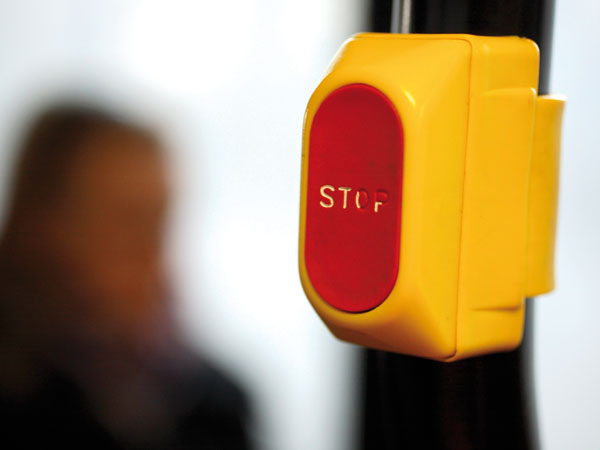The safety culture of the bus industry is the focus of a new research project at VTI. The aim is to study factors that affect safe and legal behaviour in traffic, and how such behaviour can be encouraged.
The long-term and comprehensive road safety objective is to eliminate death and serious injury resulting from traffic accidents. Professional road users shoulder a great responsibility, and can contribute to road safety by respecting speed limits and wearing seat belts, as well as by generating and using feedback and learning from incidents and accidents.

Photo: Hejdlösa Bilder/VTI
Bivab, a collaborative company owned by some thirty bus companies, has long worked to promote continuous improvements. Its common management system was environmentally certified in 2002. Since then, it has gradually been expanded to encompass quality, working environment, and (since 2018) road safety. Today Bivab is certified according to ISO standards for quality, working environment, environment and road safety. The system includes policies, objectives, procedures and forms pertaining to quality, working environment, the environment, and safety. Bivab’s members also wished to transform the safety culture of their industry and increase involvement in the organisation.
“In the beginning of the process, our plan was to upgrade our management system to include road safety, and we were totally focussed on supporting our partners in their respective processes of achieving road safety certification. Then I attended the VTI researcher Christina Stave’s lecture at the 2018 Tylösandsseminar. It was then and there that the idea was born – that I wanted to see if an upgrading of the management system could result in any change in the behaviour of employees when it came to road safety,” says Mia Ellison, Bivab’s project manager for the study.
A Change in Behaviour
After the lecture, Mia Ellison contacted Christina Stave, and this later resulted in a project application submitted to Skyltfonden (a foundation managed by the Swedish Transport Administration). The purpose of the research study is to study the development process of Bivab’s management system and the safety culture of the bus companies in order to determine which factors affect safe and legal behaviour in traffic and how they can be promoted.
“We want to help achieve Vision Zero while also setting an example in the industry. Working systematically and consistently with road safety will lead employees to change their behaviour, which in turn will result in increased road safety and fewer injuries, accidents and incidents, thus ensuring safer and more secure journeys for both employees and travellers.”
In addition to studying safety culture and the factors that have a positive effect on safety work, the researchers will also investigate whether there is a link between a good safety culture and a number of key performance indicators (KPI). Can investments in safety also yield organisational benefits at the financial and environmental level, as well as improved internal communication?
“Our ambition is to be able to link speed compliance and other safety factors to culture, behaviour and sustainability,” says Christina Stave, the research leader at VTI.
The project will run until 31 December 2020.
About Bivab
Bivab conducts regular and school transport services on a contract basis for municipalities and traffic principals in southern Sweden. Their traffic contracts involve a total of approximately 1,800 employees and about 700 buses providing contract-based transport services. Bivab facilitates 15 million journeys annually.
 Contact:
Contact:
Christina Stave
christina.stave@vti.se
VTI, Swedish National Road and Transport Research Institute, Sweden






Follow us: